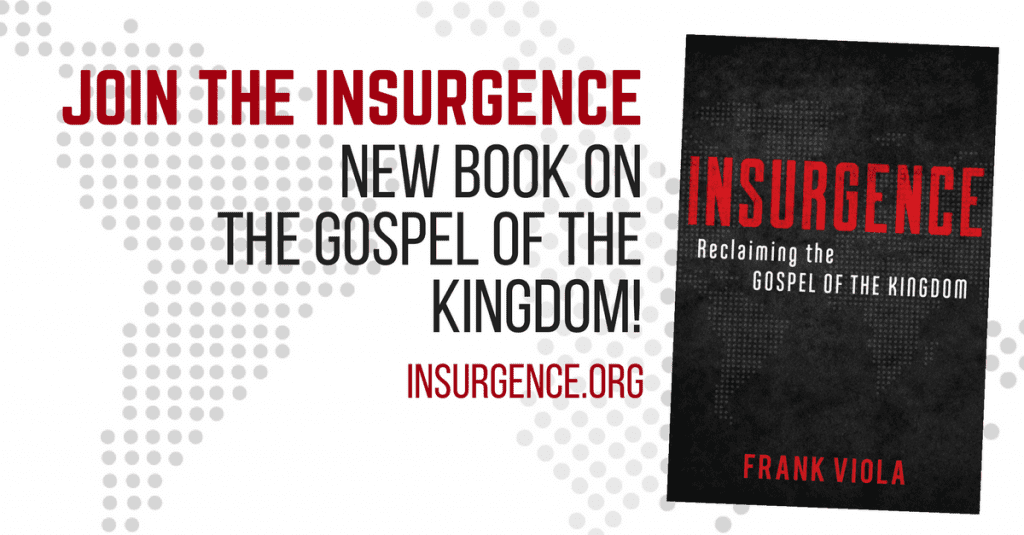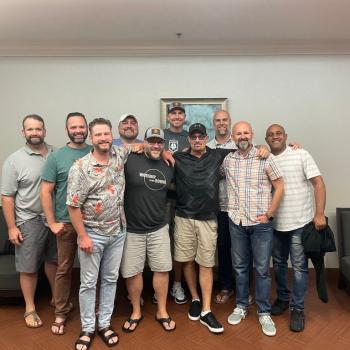Today, I interview Peyton Jones about his recent book, Church Zero.
Enjoy!
What is church zero about?
Peyton: Church Zero is a book about radically rethinking the direction that churches are building in. The last time I checked, Jesus gave the church directives that focused us outwards. Instead, we’ve focused on building the church upwards. Bigger buildings, bigger congregations, bigger bills, have all left us with a bigger need to feed the ever-growing machine.
Yet for all of our size and “power” we are achieving far less than the early church did. Church Zero is a book about putting the 1st century rocket fuel back into the 21st century church. It’s about rediscovering the dangerous, cutting edge, apostolic ministry found in the pages of Acts instead of drawing crowds of Christians.
Why did you write this book?
Peyton Jones: At the risk of sounding like a hyper-spiritual freaky freak, I wrote Church Zero out of obedience. I had felt this burden in my heart for the church to be what God intended it to be. I love the church, just not what we’ve made it into. I knew that I’d be committing career ministry suicide by writing it, but I felt it was something that needed to be written. Even my agent, who is Presbyterian said after reading the manuscript, “You’ve got a prophetic burden kicking out of your chest.” When you can get Presbyterians to talk like that, you just may be onto something.
The second reason is that I love lost people. I believe that the church is the sleeping giant that needs to be awoken. Once roused, the church that Jesus established as a subversive and dangerous force will continue to take ground as it did in the days of revival, throughout church history, and in the pages of the New Testament. Until we’re seeing that, why would we rest? I think that because my love for the Body of Christ comes through, I have avoided being accused of attacking the church. Instead, it’s kind of like inspiring the church like an army recruiter to “be all they can be.”
It’s a clarion call to rouse Christians who are citizens of the kingdom to being soldiers bent on rescuing the captives. As a church planter, my job is empowering ever believer to become the mission, not just go on one. I suppose, Frank, that this book is really just what I do on a regular basis being put into print for all who can’t come with me on a team into the inner city in Los Angeles, or somewhere in Europe to “come along” like we do when we read the Acts of the Apostles and get inspired by “what could be.”
You mention a way in which church ought to be 1st century. In what ways?
Peyton Jones: First off, I know you’ll sympathize Frank by having read so many of your books. One way that we can be more like the church is to get away from the boy-on-a-string Pinocchio dance on the Sunday stage where we keep the people entertained so that they keep flinging coins up on deck. The church has become about money and power in a way that rivals the temple at Jerusalem when Jesus overturned the tables.
Evangelical Christianity has largely become religion-as-big-business wherein Christianity is sold like a philosophy to those who need a spiritual country club to feel like they belong. The sense of the church being on mission together has all but faded from our understanding. I think that the key element that we’re missing is risk. Taking you out of your comfort zone is a key to experiencing the power of the comforter who was promised in connection with the mission of the church. If the church is no longer on mission, then it will no longer experience power. That’s why we’ve reverted to running a show, instead of experiencing power. When you read Acts, you can almost feel the power that Doctor Luke is talking about.
I can remember sitting in my mega-church office years ago wondering why I was even there when I could see two other large church buildings from where I sat. I was reading the book of Acts, and longed for the danger that Paul often got into. To be honest, I was bored. I was bored with giving homilies to rooms full of Christians and being told I was funny, gifted, etc. Those things had stopped turning me on. I wanted to see what I’d been reading about, and like the Arch Bishop of Canterbury once said, “Wherever Paul went, they threw a riot, but wherever I go, they throw a tea party.” I have a sneaking suspicion that the average believer is bored like I was, and craves more because the Holy Spirit within them is waiting to be needed. But first, we’ve got to put ourselves in places of risk and insecurity wherein he’s not just an option, but an essential component…like he was in Acts.
How did your church start in Starbucks?
Peyton Jones: On accident! I think it’s fair to say that if Rick Warren planted the Purpose Driven Church, we were the accident driven church. I had quit ministry after having my pastoral heart broken in an established church. After quitting ministry though, I found that I wasn’t in God’s way anymore. I was working at a Starbucks as a failed missionary in Wales, UK ready to come home with my tail between my legs. After enough people came through the bar and asked me what I thought of Dan Brown’s best-seller The Davinci Code, I decided that I’d better read it.
Once I did, I decided to throw a reading group inviting anybody who wanted to come. The Starbucks were all too happy to oblige because it was a community event, but I discovered how powerful discussion could be evangelistically. Before I knew it, I had people that were spiritually hungry who were willing to open up. The group grew to about 50 people and we knew that we were on to something. I’ll never forget when they asked at the end of the first night if we could do it again. I said no. I had told God I’d quit ministry and didn’t want to go back in ever again. Asking the people in front of me why they’d want to keep meeting, they said “We were drinking good coffee, talking about Jesus, and nobody was yelling at us.” I guess that was a rare combination, sad to say.
That said, only 1.6 percent of the population of Wales goes to church at all. They were hungry for what the 1st Century knew and enjoyed in gospel communities, but I just didn’t know what that was. All I knew was that this felt like how church ought to be, and once I’d experienced it, there was no going back. From that day forward, I’ve led churches around coffee tables in public spaces.
You talk about church in public spaces a lot. What does that look like?
Peyton Jones: Each one has been different. We had video game competitions in homes, or film clubs one week that met in gospel communities the next. Alternating between an activity like that and a gospel community looked something like this:
“Hey, you guys said ‘see you next week’, but we only meet every other week. What else goes on?”
“Well, we have a community group that meets here. You’re welcome to come. See that guy over there, James? Yeah, the guy who kicked your butt at Halo tonight? Yeah, he’s going to be sharing something. We eat, share about our lives, and discuss.”
You’re also a big fan of church being interactive. What does that look like for you?
Peyton Jones: To be honest, I don’t care if we’re sitting around in circles in a coffee shop, having open mic night in the gay coffee house, or doing open air church in a park where people are asking questions while I’m speaking. In all three of those settings, I usually don’t get to answer questions because the community begins to interact.
When Paul went into the synagogues and “reasoned” with the Jews, it was a form of dialogue. I still crank out the monologue, don’t get me wrong, but our times together are longer because we discuss while the speaker teaches. Oh, and I teach very rarely, even though it’s my strongest gift. Over the years, I’ve been so much more excited about watching others use their gifts, that my gift seems to be encouraging others to develop theirs.
What’s the way back for the established church?
Peyton Jones: Nothing that I have to say on that is original. You’ve written largely on this and said very similar things, but I think that this is largely because we’re stealing most of our thoughts from what Jesus said and the Apostles did. Jesus had all the best ideas anyways. I have found that the way back for the church is to return to the 1st century model. Finding what that looks like in the 21st century is what Church Zero is trying to recover on a practical level; showing planters how they can plant 1st century churches today.
It takes the 1st century attitude, modeled by 1st century style leadership, and then it catches on in a big way. In Europe, it was all that would work, and we’re starting to see established churches facing the same chill as the same post-Christian winds blow in. I recently submitted an article to Leadership Journal on training leaders up for the future. I noted that most leaders are prepping for a future that isn’t ever going to come because they imagine it to be like the present but with smart watches. They couldn’t be more wrong. The future is going to look a lot like Europe, and a lot like the 1st century, where people are cynical, yet superstitious.
That’s the funny thing about a post-christian society, it’s a lot like a pre-christian one. I told the editor the same thing about my article that I wrote in Church Zero … what I’m saying probably won’t make too much sense to an American audience right now in the current clime until they recognize the decline. Give it ten to twenty years, and what I’m saying will be perceived as genius!















